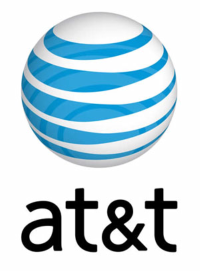
As of June 7, AT&T will offer two data plans to new customers, DataPlus — a $15-a-month plan that offers 200MB of data — and DataPro — a $25-a-month plan that provides 2GB of data. DataPlus users that go over their monthly data allotment will pay $15 for another 200MB of data, and DataPro users will pay $10 for another 1GB of data. AT&T will let users jump between the plans seamlessly. The 2GB DataPro plan will also replace the iPad’s current $30-a-month unlimited plan.
[aditude-amp id="flyingcarpet" targeting='{"env":"staging","page_type":"article","post_id":187955,"post_type":"story","post_chan":"none","tags":null,"ai":false,"category":"none","all_categories":"business,mobile,","session":"A"}']The carrier based its new data plans upon average customer data usage. According to AT&T, 65 percent of its smartphone customers use less than 200MB of data monthly, and 98 percent use less than 2GB of data. Of course, those numbers include all of AT&T’s smartphones — it would have been interesting to see just how different the numbers were for iPhone customers specifically.
Existing AT&T customers will be able to keep their unlimited data plans if they wish. According to the company’s official Facebook page, customers will also be able to keep grandfathered unlimited plans even after they upgrade phones.
AI Weekly
The must-read newsletter for AI and Big Data industry written by Khari Johnson, Kyle Wiggers, and Seth Colaner.
Included with VentureBeat Insider and VentureBeat VIP memberships.
Unfortunately, if you want to keep your unlimited data plan, you won’t be able to sign up for tethering — a feature that lets you use your phone as a wireless modem to connect other devices. Tethering will be a $20-a-month additional fee for customers on the DataPro plan, and it won’t be available for the iPhone until iPhone OS4 operating system hits this summer. The tethering fee merely grants you the privilege to use the feature, so your tethered devices will still be using the same 2GB pool of data as your phone.
This may be a good deal for users new to tethering, but for heavy users it’s actually more expensive than the company’s DataConnect laptop plan, which offers 5GB of data for $60, instead of $75. AT&T’s DataConnect plans won’t be affected by these latest changes, so they will still be an option for hardcore users.
For most AT&T customers, this new data plan structure will likely save them some money. For heavy users, it’s another story, and will likely push them to other carriers. (Somehow, I think that’s what AT&T actually wants.) The carrier will send text messages to users when they hit 65 percent, 90 percent, and 100 percent of their data — so there’s little chance of charges sneaking up on them. Customers will also be able to check on their data usage via the free AT&T myWireless application, by calling *DATA# on their phone to receive a text message with their stats, or via the AT&T website.
VentureBeat's mission is to be a digital town square for technical decision-makers to gain knowledge about transformative enterprise technology and transact. Learn More